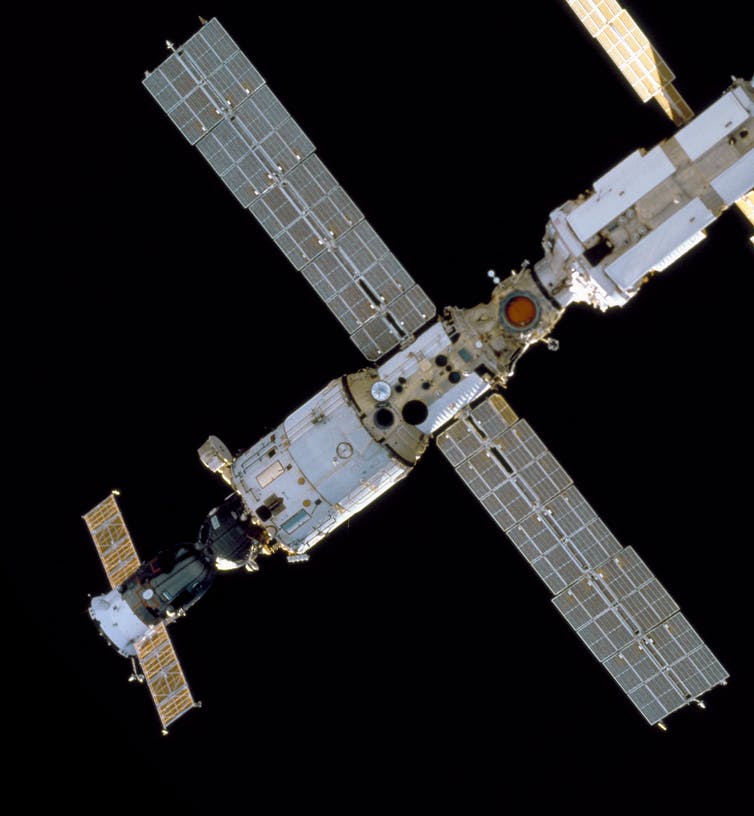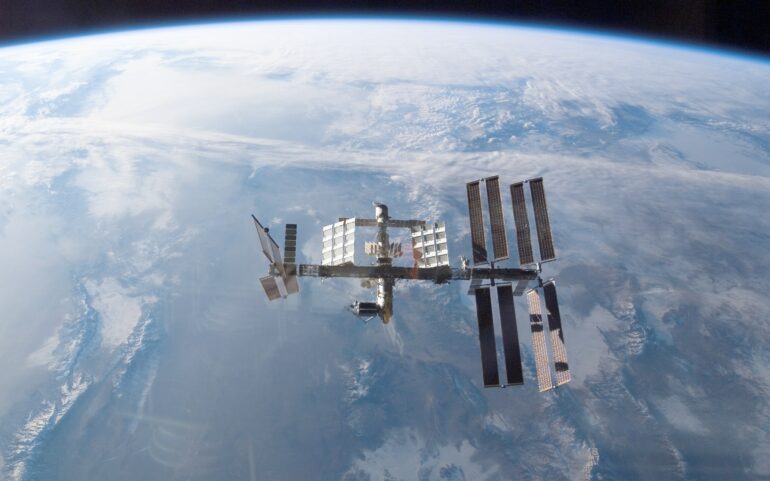Russia intends to withdraw from the International Space Station after 2024, according to an announcement from Yuri Borisov, the new head of the Russian space agency, Roscosmos, in a meeting with Vladimir Putin on July 26, 2022. Borisov also said future efforts will focus on a new a Russian space station.
Current agreements on the ISS have it operating through 2024, and the station needs Russian modules to stay in orbit. The U.S. and its partners have been seeking to extend the station’s life to 2030. Russia’s announcement, while not a breach of any agreement or an immediate threat to the station’s daily operation, does mark the culmination of months of political tensions involving the ISS.
Over its 23-year lifetime, the station has been an important example of how Russia and the U.S. can work together despite being former adversaries. This cooperation has been especially significant as the countries’ relationship has deteriorated in recent years. While it remains unclear whether the Russians will follow through with this announcement, it does add significant stress to the operation of the most successful international cooperation in space ever. As a scholar who studies space policy, I think the question now is whether the political relationship has gotten so bad that working together in space becomes impossible.

The Zvezda module, at the far bottom left in this photo, is one of six Russian segments of the ISS and houses the engines used to keep the station in orbit.
NASA
What would this withdrawal look like?
Russia operates six of the 17 modules of the ISS – including Zvezda, which houses the main engine system. This engine is vital to the station’s ability to remain in orbit and also to how it moves out of the way of dangerous space debris. Under the ISS agreements, Russia retains full control and legal authority over its modules.
It is currently unclear how Russia’s withdrawal will play out. Russia’s announcement speaks only to “after 2024.” Additionally, Russia did not say whether it would allow the ISS partners to take control of the Russian modules and continue to operate the station or whether it would require that the modules be shut down completely.
Given that the Russian modules are necessary to station operations, it’s uncertain whether the station would be able to operate without them. It’s also unclear whether it would be possible to separate the Russian modules from the rest of the ISS, as the entire station was designed to be interconnected.
Depending on how and when Russia decides to pull out of the station, partner countries will have to make tough choices about whether to deorbit the ISS altogether or find creative solutions to keep it in the sky.
A continuation of political tensions
The announcement of the withdrawal is the latest in a series of events concerning the ISS that have occurred since Russia first invaded Ukraine in February. Russia’s…



